
Danger may not be the first thing that comes to mind when you think of sauerkraut, but it is particularly present if you are making your own. Things to watch out for are the cooking vessels you use to store the sauerkraut, the methods of preparation and sanitization of equipment. Despite being a healthful food with curative properties, sauerkraut can contain large amounts of salt, which may be prohibitive for some diets.
Canning Methods
Making sauerkraut depends on lactic acid fermentation. If you boil the cabbage, you could kill the bacteria that converts the cabbage to sauerkraut. Moreover, sealing the jars afterwards could introduce spores that could give rise to toxins that induce deadly botulism. Fermenting cabbage is different from canning it; you encourage the production of native healthful bacteria in the first case, whereas the latter eliminates fermenting bacteria in favor of dangerous heat-resistant Clostridium botulinum strains.
Jar Sterilization
When making sauerkraut in glass jars, sterilizing the jars beforehand could be dangerous if you do not slowly increase or lower the temperature. Placing cold jars in boiling water or hot jars in cold water could cause the jars to break. Also, handling hot jars could cause burns. Remember to cool hot jars slowly before handling and place cold jars in cold water before bringing them to a boil.
Aluminum Cookware
It may not be an issue if you are making sauerkraut in glass jars, but if you use cookware to store your sauerkraut, watch out for aluminum pots that can react with the acid in the sauerkraut. The longer the sauerkraut remains in the cookware, the more aluminum could leach into the food. Aluminum has been reputed to form aluminum salts with food that can induce Alzheimer's disease, although the link has not been proven.
High Sodium
Those on sodium-restricted diets may do well to stay away from sauerkraut, which is high in sodium. While there are many health benefits to eating sauerkraut, such as improved digestion and immunity boosting, you may want to weigh these against the potential risks of taking in more sodium than you need. High sodium is associated with hypertension, fluid retention and kidney stones. Sodium also increases the body's need for potassium.
Related Articles

Uses of Saltpeter in Food
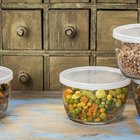
Toxins From Reheating Cooked Green ...

How to Process Sauerkraut into Canning ...
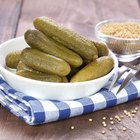
The Advantages of Pickling Foods

How Long Is Sauerkraut Good to Eat if ...
Can I Cold Pack and Can Homemade Soup?
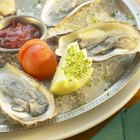
Symptoms of Food Poisoning With Oysters

What Are the Dangers of Cooking With ...
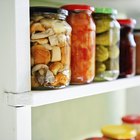
Are Pickled Vegetables Allowed on a Raw ...

What Are the Benefits of Raw Sauerkraut?
Essential Amino Acids That Are ...

How to Cook Sauerkraut and Kielbasa ...
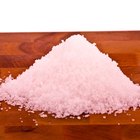
How to Use Sea Salt for Canning

Can You Let Crock-Pot Meals Sit?

Does Boiled Ham Have Nitrites?

How to Vacuum Seal Jars

What Is Agave Syrup?

How to Can Homemade Vegetable Beef Soup

Can You Freeze Canned Goods?

How to Sterilize Safety Goggles
References
Writer Bio
Timothea Xi has been writing business and finance articles since 2013. She has worked as an alternative investment adviser in Miami, specializing in managed futures. Xi has also worked as a stockbroker in New York City.
Photo Credits
Hemera Technologies/PhotoObjects.net/Getty Images